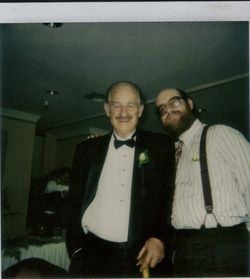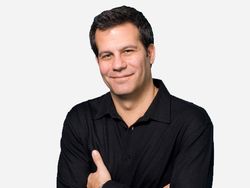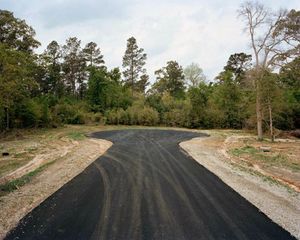
We talk about the Tea Party. We talk about racism. We talk about everything but what we should be talking about.
What we should be talking about is economics and the world technology has led us toward.
When I went to college in 1973, I left suburban living behind. It seemed like a bad idea. The suburbs were the “Sun Belt” (cities were the Rust Belt). It was the era of White Flight, but what did people do for a living in those suburbs?
A lot of them commuted back into town, to work in middle management. Some worked as travel agents. Others sold insurance. Or they stayed back in the suburbs and did things like my dad did, as small businesses. He ran a TV repair shop and, later, a lock shop.

Middle management was destroyed, slowly at first, then more rapidly. With each recession, more layers went. After the Great Recession it was all gone, replaced by devices on the sales or factory floor, reporting back to clouds of corporate data and decision trees.
A lot of my contemporaries were left high and dry by these changes. I was happy to report on them, but the failure of journalism to adapt meant my work in tech journalism dried up too, slowly at first and then, in 2010, completely. No one needs to know how to operate a device, and clouds require so much knowledge that if you’re not programming them you can’t talk about them. If my family were depending on me for their livelihood we would not have one, and we would not have gotten through the dot-bomb. I’d be dead.
Fortunately, I took my first advice at the Medill School to heart. If I wanted to have a good living, the late George Heitz said, I should find a spouse with a good job. I proposed that evening.

Software is the one product left that is made by hand, and programmers are the one group left whose hand work is worth buying. It’s because software productivity still proceeds arithmetically, not logarithmically as scaled software does, but step by step. And the old code must be maintained.
My wife’s programs process credit card transactions, and getting stuff online is the key to our good life. Clouds and their applications, devices and their apps, networking, the Internet of Things, making the future, once software is put online it scales automatically. Maintaining the code, expanding the code base, handling dependencies – the world needs Jenni Blankenhorn far more than it does Dana Blankenhorn.
For everyone else, this century has been very hard.
There are now too many lawyers. Law schools are closing because there’s less demand. Partly, it’s because there’s less crime. Conservative legislators have managed to close a lot of the civil specialties lawyers once prospered in, making most class actions illegal, and making whole industries immune from suit through forced arbitration. Simple legal tasks like incorporations, wills and divorces have become automated.
There are now too many doctors. People who once were treated as Kings and Queens in high office buildings are now on street level, told by computers and the payment systems behind them what they can do and what they must charge. Routine work is done by physicians’ assistants, registered nurses, and para-professionals. Many specialists are having their bills refused, for the first time, because they’re not “best practices” and they’re not in the insurance networks. Doctors were once entrepreneurs, now they’re employees.

The Sun Belt has become the new Rust Belt. I call it the Asphalt Jungle.
The new opportunities are all in the central cities. An urban explosion began 20 years ago, observed a decade ago by Richard Florida in his “Rise of the Creative Class.”
This is where the money is being made now. It’s in research, and the businesses research spawns. It’s in the creative products that people working on research in the cities want to buy – artisanal food, craft beer. It’s in the services that make the lives of the Creative Class more pleasant – yoga classes, fitness coaches, marriage counselors.
This is great for people who, like me, live in cities and can keep up with its rising costs. I’ve had the same house in-town since 1983. Bought for $49,500 in 1984, it is now worth 10 times that much, and a couple – both high end traveling sales types – just bought a house across the street for $750,000.
I am now surrounded by good restaurants and retail shops. Young professionals ride bicycles past my house each morning, the nearby schools are filled with little kids, and their brothers or sisters are walked around the corner to the artisanal doughnut shop. Their parents walk the dogs in the evening or leave that to professional dog walkers. The cops and teachers and journalists who once were my neighbors have been priced out.
These changes cannot be stopped. Moore’s Law rules. Those middle management, sales, and professional jobs are gone, never to return, just as the Rust Belt factory jobs of a generation ago never returned.
The victims of this change can’t believe it. In their youths they were cutting edge. Now they’re all Ned Ludds looking for a loom to destroy, and finding only clouds.

What these people want is a savior, someone who promises to make it all better, to return life to what it was, back in the day, back in the 20th century. They’re ripe for scapegoats. The social tolerance of those in the research centers make good scapegoats. The new suburban jobs are unskilled, and Mexican or Muslim immigrants can do them just as well, while the skilled jobs are being seized by Koreans, Indians and Mainland Chinese.
Of course they’re angry. Just like the “Reagan Democrats” of old were angry, because the factories had closed and they had been left behind in the Rust Belt.
This is Trump’s Army. They come from the Asphalt Jungle to destroy the future, in the name of the past.
A generation of Republican politics have taught these people that politics is war. The Nixon Thesis of Conflict sowed the idea that those who disagreed were enemies, and everyone inside the tent quaked in fear that they might be thrown out as apostate next. Their faith became absolute, and their politics absolutist. They forgot, or were told to forget, that politics is not only the art of the possible, but that compromise is natural, and that you can’t always get what you want.

Trump is the Caudillo. He is seeking, not to be President, but to be an African dictator, a Vladimir Putin who will halt history in its tracks and march us all backward. It’s not “Make America Great Again” but “Make Our America Great Again,” suburban America, the America of urban sprawl.

That’s what the Crisis of 2016 is all about. Will we adapt to the future, and validate the Obama Thesis of Consensus?
Or will we march backwards into a past that never existed? Will we be one nation, or make war against one another, and the machines that serve us? Will our fears lead us backward, or will we be guided by the Better Angels of our Nature?
Can’t we all just get along?
NOTE: For those scoring at home, this should be the first issue in the 20th volume of my newsletter, A-Clue.com, founded after I lost my last full time job in March, 1997. But who gets e-mail newsletters anymore?











Interesting….and insightful. A good read.
William
Interesting….and insightful. A good read.
William
The best explanation of the success of the Trump campaign so far. Good reading and excellently put into context of the wider development of the economy in the US and the developed states.
The best explanation of the success of the Trump campaign so far. Good reading and excellently put into context of the wider development of the economy in the US and the developed states.
Congratulations on 20 years of e-writing. I read your articles on SA, and happy to finally get to your blog, now off to explore the archives! Politics and economics are setting up for a interesting ride in the year ahead, I look forward to future insights.
Congratulations on 20 years of e-writing. I read your articles on SA, and happy to finally get to your blog, now off to explore the archives! Politics and economics are setting up for a interesting ride in the year ahead, I look forward to future insights.
Good commentary, but I’m confused by your re-definitions of Rust Belt and Sun Belt. I’ve always thought of them similar to what pops up with a Google search, especially the Wiki pages.
And many of our Rust Belt cities haven’t re-developed with the “creative class”. I’m near Lansing, Michigan, (not too bad) but nearby are Saginaw/Bay City/Flint. Detroit is sort of/maybe coming back, but maybe also too soon to bet on.
Good commentary, but I’m confused by your re-definitions of Rust Belt and Sun Belt. I’ve always thought of them similar to what pops up with a Google search, especially the Wiki pages.
And many of our Rust Belt cities haven’t re-developed with the “creative class”. I’m near Lansing, Michigan, (not too bad) but nearby are Saginaw/Bay City/Flint. Detroit is sort of/maybe coming back, but maybe also too soon to bet on.
It was one thing when the factories left. That is what the “Rust Belt” think is about.
It’s another when the insurance agent, the lawyer, the travel agent, and the car dealer, the doctor and the real estate agent lose their places to apps.
That is what is happening now. That’s what Techland is doing to every small town, and suburb, in America. Right now.
It was one thing when the factories left. That is what the “Rust Belt” think is about.
It’s another when the insurance agent, the lawyer, the travel agent, and the car dealer, the doctor and the real estate agent lose their places to apps.
That is what is happening now. That’s what Techland is doing to every small town, and suburb, in America. Right now.